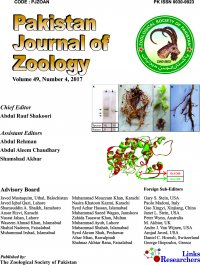Spermatozoa are susceptible to the oxidative stress OS during cryopreservation. The excessive reactive oxygen species (ROS) and the capacity of the antioxidants could affect the OS level in the frozen semen. This study was to determine the addition of different concentrations of antioxidants to evaluate oxidative stress and fertility of frozen semen in horses. Seven stallion were used for semen collection in this study. A total of twenty ejaculates was collected from three healthy stallions twice a week for the experiments 1 and 2. All ejaculates were divided into two parts of ten ejaculates each, ten ejaculates for cysteine in experiment 1 and the other ten for ascorbic acid groups in experiment 2. Each ejaculate from an individual horse was divided into six equal parts of the study, and they were cryopreserved using the same procedure. Different concentrations of either cysteine (0, 0.25, 0.5, 1, 2, and 4mg/ml) or ascorbic acid (0, 0.25, 0.5, 1, 2, and 4mg/ml) were added to the semen of the first and second experiments. HF-20 containing no ascorbic acid and cysteine was used as a control. The post-thawed semen from all the samples were assessed for motility, oxidative stress, sperm membrane integrity, morphology, and acrosome integrity. Four stallions were nominated for AI in the current study. The best result from different concentrations of cysteine and ascorbic acid were used for AI. Thirty mares were divided into three groups of 10 mares each and were then inseminated using the frozen semen with the following extenders: HF-20 extender (0) as control, 0.5 cysteine, and 0.5 ascorbic acid. The level of oxidative stress steadily increases with increase concentrations of cysteine and ascorbic acid. Although the samples treated with cysteine and those with low concentrations of ascorbic acid showed lower level of oxidative stress, the control group revealed a much better protection of oxidative stress. The supplementation of cysteine and ascorbic acid showed an adverse effect on sperm motility, membrane integrity, and viability. Nonetheless, those with cysteine and ascorbic acid recorded better sperm morphology and acrosome integrity than those from the control group. Furthermore, the fertility of frozen semen was better with the cysteine groups than with the ascorbic acid groups. The addition of antioxidant needs further adjustment on frozen stallion semen due to changes in pH, osmolality and cryoprotectants capacity.









